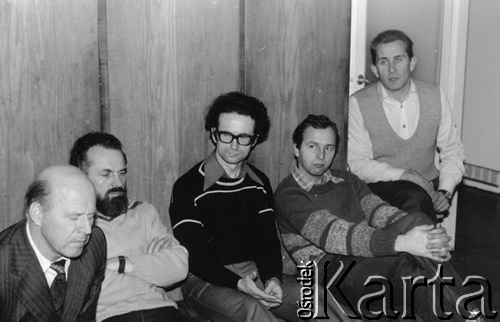On 25 March 1977, the “Appeal to the Polish society” was signed in Warsaw. It is considered to be the founding document of the Movement for the Defence of Human and Citizen’s Rights (ROPCiO) – an opposition organisation which, alongside the Committee for the Defence of Workers (KOR), was active in communist Poland before the emergence of ‘Solidarity’.
The communist authorities in Poland after the June 1976 events unleashed a wave of brutal repression against the participants. This was met with an aid campaign for the oppositionists, unexpected for the communists. It consisted of legal action, financial and medical support. This assistance had a grassroots character, which took an organised form after the formation of the Workers’ Defence Committee (KOR) in September 1976.
The spring of 1977 saw the creation of opposition structures to the communist authorities in Poland other than the KOR, namely the Movement for the Defence of Human and Civil Rights. Its members included representatives of pro-independence milieus originating from the period of the Second Polish Republic, soldiers of the Home Army, political prisoners and activists of the underground organisation “Ruch”, which had been broken up in 1970. Among the demands contained in the “Appeal”, its signatories, in addition to issues concerning the defence of human and civil rights, raised the problem of Poland’s full restoration of independence, including the abolition of dependence on the Soviet Union.
After being signed, the Appeal was handed over to the Speaker of the Parliament of communist Poland, as well as to Cardinal Stefan Wyszyński, Primate of Poland, and information about it also reached foreign journalists. Interestingly, ROPCiO had no internal structures or authorities. A certain representative function was performed by two spokesmen: Andrzej Czuma and Leszek Moczulski.
Consultation points of the organisation were soon set up across the country (in Warsaw, Łódź, Katowice Lublin and Gdańsk, among others). Participants of ROPCiO published non-debit periodicals (“Opinia”, “Gospodarz” and others), organised manifestations, e.g. on the occasion of the 60th anniversary of regaining independence by Poland in 1978. They also influenced the formation of Free Trade Unions independent of the communists (in Silesia and Gdansk). Due to their activities, participants of ROPCiO were repressed by communist authorities (arrests, redundancies, etc.).





